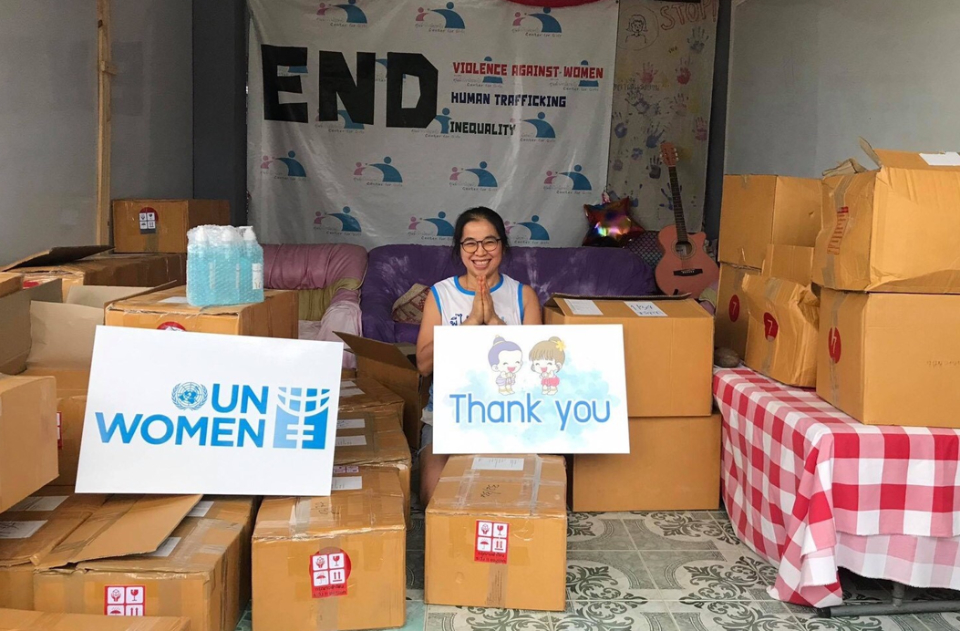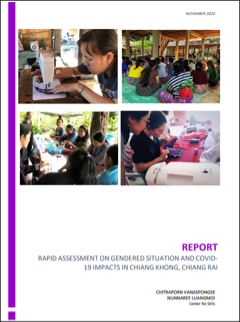Gender Responsive Disaster Preparedness and Response

COVID-19 Response
COVID-19 is having devastating social and economic consequences for women and girls[1]. This includes unemployment, increased unpaid care work, limited access to services such as education and health and increased risks of violence against women and girls. Although COVID-19 is non-discriminatory, vulnerable groups tend to suffer the most from its impact. It is for this reason that addressing the needs of vulnerable groups is a matter of priority and urgency.
Lockdown and social distancing measures such as working from home or limited movements may not be realistic options for some vulnerable groups. The majority of women works in informal employment and lacks access to contributory social protection and entitlements at workplaces, such as paid leave or sick leave. According to the Informal Employment Survey by NSO in 2019, there were approximately 20 million workers in the informal sector. Of which, 9 million or 44 percent are women[2]. Their jobs include vendors and motorbike taxi heavily rely on daily income. Many of them are facing with unemployment due to business closure with limited accessibility including limited technology and internet and eligibility to social security scheme and stimulus package by the Government.
Women ethnic minorities and Women migrant workers especially in hard-to-reach communities and isolated workplaces are unable to access to services and support due to legal status, non-Thai nationality and language barriers in addition to economic stress due to business closures. Living in remote areas and closely packed housing units make them even more vulnerable to health risks and difficulties in complying with the social distancing and isolation.
In conflicts affected areas, women in the Southern Border Provinces especially in remote communities are facing limited access to health services and personal protective equipment and lack of awareness and information on self-prevention from COVID-19 due to geographical remote areas and limited travel restrictions. There has been higher rate of cases of Thai Muslims returning from religious events in neighbouring countries.
In response to COVID-19, UN Women in collaboration with local partners conducted the rapid assessment survey in April-May 2020 with at least 3,000 people in Thailand to understand the impact of COVID-19 on women. Through the support from UN Women National Committee Australia and Swedish International Development Cooperation Agency (SIDA), UN Women in Thailand:
- reached out to at least 12,000 vulnerable women throughout the country to provide necessary hygiene supplies and to raise awareness of gender-based violence (GBV), violence against women (VAW), social cohesion and COVID-19. Informational materials were disseminated or broadcasted through community radio or community outreach by women leaders in local dialects;
- designed economic empowerment and livelihoods improvement schemes for women who have been directly and indirectly affected by COVID-19 including producing hygiene masks or basic supplies by women in local communities; and
- enhanced capacities of local women through knowledge and skill transfer using
Against the Odds: Stories from women in Thailand during COVID19
[1] António Guterres UN Secretary-General's video message on Women and COVID, 9 April 2020.
[2] ‘The Informal Employment Survey, 2019’, the National Statistical Office.
